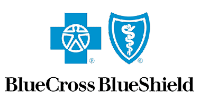How Assistance Works
Streamlining our patient’s specialty pharmacy experience with unmatched full-service convenience
-

1. Check Your Coverage/Benefits Verification
Our team of expert billers finds the best avenues of coverage that minimize out-of-pocket costs.
-

2. Transfer Prescription to AmeriPharma™
We process your prescription by working with your previous pharmacy or prescriber, making the transition quick and easy.
-

3. Prior Authorization
Our team of specialists obtains approval from your insurance companies within 24 to 72 hours.
-

4. Copay Assistance & Financial Aid
We secure financial aid and decrease copays, out-of-pocket expenses, and high deductibles. To date, AmeriPharma™ Specialty Care has secured $55 million in financial assistance for our patients.
-

5. Nursing Care Coordination
AmeriPharma™ puts your schedule and home environment first when scheduling and coordinating one of our specialized nurses for your in-home infusions.
-

6. Delivery Coordination
Medications are always delivered in strict compliance with the specific requirements for shipping. Next-day and overnight cold-chain deliveries are coordinated around your schedule.

What Is Soliris?
Soliris (generic name: eculizumab) is a type of medication called monoclonal antibodies, similar to antibodies that our bodies make to protect us when an unwanted substance enters our bodies. In the case of Soliris, the antibody is humanized, which means its protein sequences have been modified to increase its similarity to those produced naturally in our bodies, making it safe for human administration.
Serious meningococcal infection risk:
Soliris has a US Black Box Warning due to the possibility of causing serious meningococcal infection:
“Life-threatening and fatal meningococcal infections have occurred in patients treated with Soliris. Meningococcal infection may become rapidly life-threatening or fatal if not recognized and treated early.
Comply with the most current Advisory Committee on Immunization Practices (ACIP) recommendations for meningococcal vaccination in patients with complement deficiencies.
Immunize patients with meningococcal vaccines at least 2 weeks prior to administering the first dose of Soliris, unless the risks of delaying Soliris therapy outweigh the risk of developing a meningococcal infection.
Vaccination reduces, but does not eliminate, the risk of meningococcal infections. Monitor patients for early signs of meningococcal infections and evaluate immediately if infection is suspected.
Soliris is available only through a restricted program under a Risk Evaluation and Mitigation Strategy (REMS).”

How Is Soliris Used?
Soliris is used for the treatment of:
- Atypical hemolytic-uremic syndrome (aHUS), which is a disease that mainly affects kidney function. There is no specific age group for when this condition may occur. It can cause blood clotting to happen abnormally in the small blood vessels of the kidneys, which in turn could cause serious medical problems if blood flow becomes restricted or blocked.
- Myasthenia gravis (MG), which is a chronic autoimmune disorder in which the body’s own antibodies start attacking and destroying the connection that is responsible for communication between nerves and muscles. This results in weakness of the skeletal muscles. Myasthenia gravis generally affects voluntary muscles of the body, mainly those controlling the limbs, mouth, throat, and eyes.
- Neuromyelitis optica spectrum disorder (NMOSD)(previously known as Devic disease), which is a condition where the immune system damages the spinal cord and the nerves of the eyes (optic nerves). NMO can affect anyone at any age, but it’s more common in women than men.
- Paroxysmal nocturnal hemoglobinuria (PNH), which is a rare, acquired, life-threatening disease of the blood. The disease is characterized by premature destruction of red blood cells, blood clots, and impaired bone marrow function. PNH is closely related to aplastic anemia.
Copay and Financial Assistance
AmeriPharma™ Specialty Care alleviates financial burdens for patients and their families
-

Advanced software locates funding sources to match you with top-dollar foundation programs
-

One of our copay assistance specialists will assist with the application process
-

Automatic updates will be sent to you and your physician on the status of the funding

Directions for Use
Depending on the diagnosis to be treated, Soliris is administered as follows:
A calculated loading dose is given once weekly for a total of 4 weeks, then the calculated maintenance dose is administered at week 5 and then every 2 weeks thereafter.
Soliris is first diluted, then administered intravenously using a catheter that is inserted into the vein. Infusion is done over 35 minutes (for adults) and over 1 to 4 hours (in pediatric patients). Infusions are followed by a 1-hour monitoring time for any signs or symptoms of an infusion reaction.
Soliris is only available through a REMS program due to an increased risk of life-threatening meningococcal infections, which can lead to death. Patients must receive the meningococcal vaccine at least 2 weeks before the first dose if they are not already vaccinated.
Soliris Side Effects
- Hypertension (increase in blood pressure)
- Headache
- Insomnia
- Fatigue
- Skin rash
- Pruritus (itching)
- Hypokalemia (a lower than normal potassium level in the bloodstream)
- Nausea
- Vomiting
- Abdominal pain
- Diarrhea
- Inflammation of the stomach and intestines
- Infection
- Urinary tract infection
- Anemia
- Neoplasm (new and abnormal growth of tissue in a part of the body)
- Leukopenia (a decrease in white blood cell count [disease-fighting cells])
- Weakness
- Back pain
- Joint stiffness
- Muscle pain
- Pain in the arms or legs
- Muscle spasm
- Eye disease
- Poor function of the kidneys
- Cough
- Common cold
- Nasal congestion
- Upper respiratory tract infection
- Stuffy nose
- Bronchitis (inflammation of the lung’s airways)
- Fever
- Burning or prickling sensation
- Hair loss
- Bacterial infection of the skin
- Constipation
- Decreased appetite
- Inflammation of the bladder
- Chronic kidney failure
- Bruises
- Antibody development
- Herpes simplex infection
- Inflammation of the eye
- Stye of the eye
- Cataracts
- Pain or irritation of the throat
- Sinusitis
Insurances Accepted
We accept Medicare, multi-state Medicaid, Medi-Cal, Blue Shield, and most private insurances. Call us to find out more about your coverage.
Get Started in Minutes
Fill out your information and one of our specialists will call you ASAP.
How Much Can You Save?
Speak with a copay assistance specialist
(877) 778-0318
By submitting, you agree to AmeriPharma’s Terms of Use, Privacy Policy, and Notice of Privacy Practices


